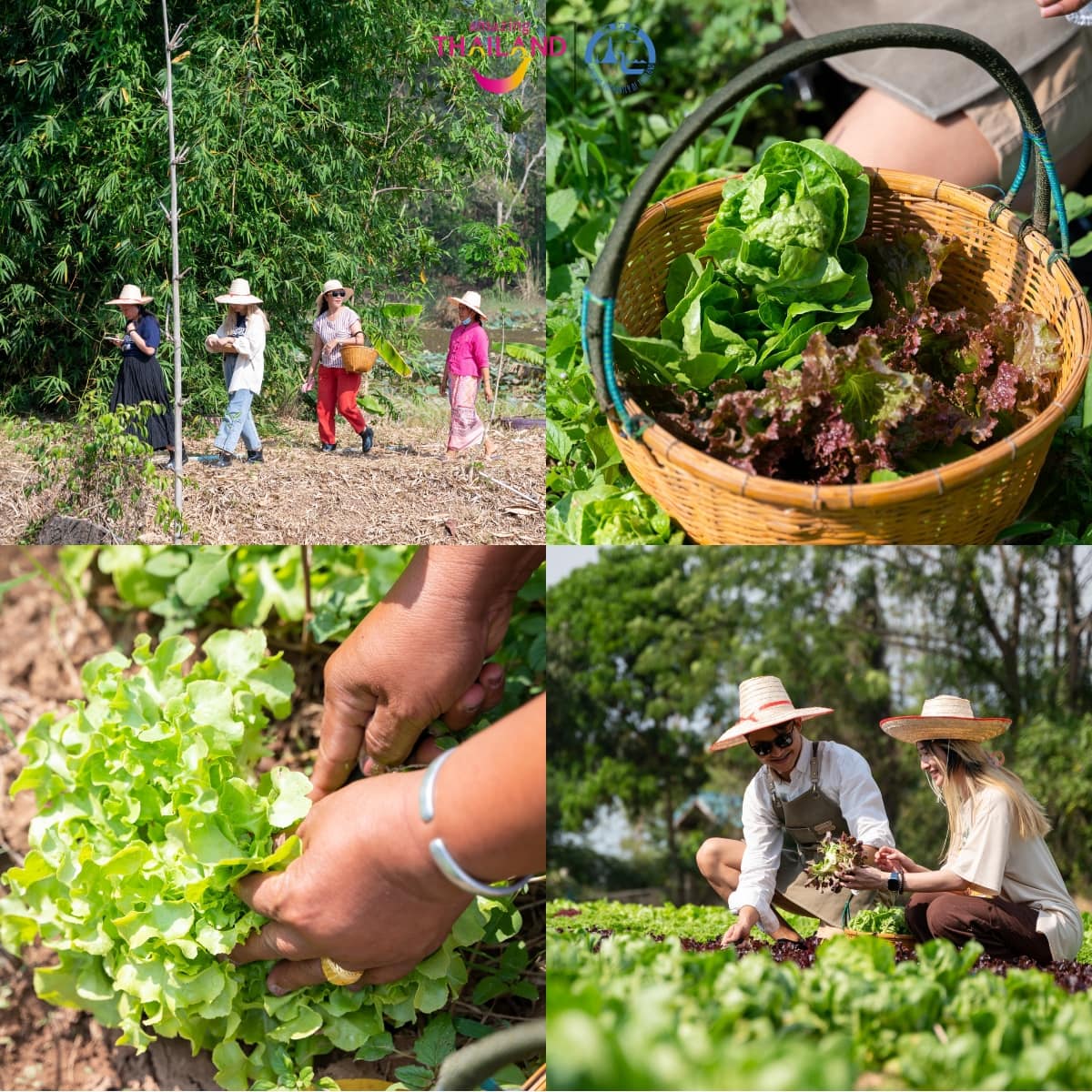The Red Envelope: Billkin and PP Krit’s Take on a Love Story Beyond the Grave
In a cinematic landscape saturated with remakes, reboots and sequels, you might ...

Tourism has long been Thailand’s top income earner, bringing in almost 20% of GDP prior to the Covid – 19 pandemic. The Office of the National Economic and Social Development Council projected in 2019 that the tourism sector would account for 30% of GDP by 2030.
However, the economic boom as a result of tourism has had its negative effects, mainly on the country’s natural resources. Land appropriation in order to expand infrastructure such as roads, hotels, restaurants and shops; depletion of natural resources to provide building materials, food and travel; excessive noise and air pollution and waste; loss of wildlife due to loss of natural habitat, both on land and in the water. Without proper control, economic gains for the country have come at the expense of the natural environment.
To help curb these negative effects in the tourism industry, a small social enterprise start-up called Find Folk was created by Jakkapong Chinkrathok or Tontarn. He noted that despite the success of Thailand’s tourism industry—Thailand was in the world’s top 10 ranking in terms of income from tourism—the country’s competitive and management potential was way down the list at No. 31. As it turned out, Thailand still lacked proper control and management of the environment, culture and natural resources which would threaten the health of tourism in the future. There was an urgent need to create a balance between profit and exploitation.
And Find Folk does literally that—they find the real local folk or cultural gems of each location, create awareness of the need to take charge of their own treasures, and help them on their journey to protect the environment. In short, they are tourism development consultants for local communities. At the same time, they also act as a travel agency, encouraging visitors to enjoy the genuine, unadulterated aspects of Thailand without the need for embellishment and exploitation.
Miang Klib Bua, a local delicacy eaten with lotus petals
Essentially, the goal of Find Folk is responsible, sustainable tourism through the introduction of trends and innovations, which will benefit local communities, the natural environment, and tourists alike. They aim first to create awareness in the local communities of the need for sustainability, to protect and manage their natural and cultural resources, the introduction of innovations so the community is not only looking to earn an income, but also to know they have to invest in the management of their resources, and build a sense of appreciation by tourists and local communities alike in responsible tourism. As a link between the two, they also set themselves up as a market place, offering products from various communities. For this, they look to corporate partners, an integral part of the chain especially during the recent Covid – 19 restrictions when tourism came to a virtual standstill.By-products of Find Folk’s responsible tourism mantra include a gradual reduction of waste and carbon emissions.

In the true social develop-ment principle of “explosion from within”, Find Folk works with local communities, earning their trust and making them an integral part of the development process in order to create sustainability. They already have over 200 communities in their portfolio, and one of the success stories was the Bang Kor Bua community in Bangkrachao, Bangkok’s “island” oasis surrounded on all sides by the Chao Phraya River. An initial brainstorming session with local stakeholders came up with one solid vision—to become an eco-friendly travel destination.
Dedicated bicycle lanes allow visitors a fun way to look around the community
Amongst other things, Find Folk helped to create a low-carbon route where bicycles or kayaks rather than cars or long-tail boats are the vehicle of choice, becoming an eco-friendly tourism model for other communities around the country. This “Go Green” ideology looks towards an ultimate goal of becoming “carbon neutral”. The green tour models use the Bio-Circular-Green Economy Model as indicators to screen the community activities, and among the favourite tour activities are kayaking, ikat cloth dyeing, making and painting plant pots from recycled plastic waste. With its successful track record, Find Folk has introduced further strategies for 2023, with its three-pronged “Go Consult, Go Green, Go Global” mission. “Go Consult” serves to provide consultancy services on the sustainability concept through its effective model projects. “Go Green” aims to create responsible tourism products and services with communities with the ultimate goal being Zero Carbon. And its “Go Global” strategy is to create international partnerships to promote an awareness of Thailand’s sustainable tourism models and share lessons learned and know-how. Among the initial partnerships are international universities and embassies.
In a cinematic landscape saturated with remakes, reboots and sequels, you might ...
Find out more about your celeb favourites and their most loved vacation ...
These top 5 barber shops in Bangkok are where gentlemen can elevate ...
While traditional TV shows are serving us endless boy-meets-girl tales. Thailand has ...
Sailorr and Molly Santana’s black grills fuse hip-hop swagger with homage to ...
Netflix Thailand has officially announced a new price for base subscriptions We’ve ...
Wee use cookies to deliver your best experience on our website. By using our website, you consent to our cookies in accordance with our cookies policy and privacy policy